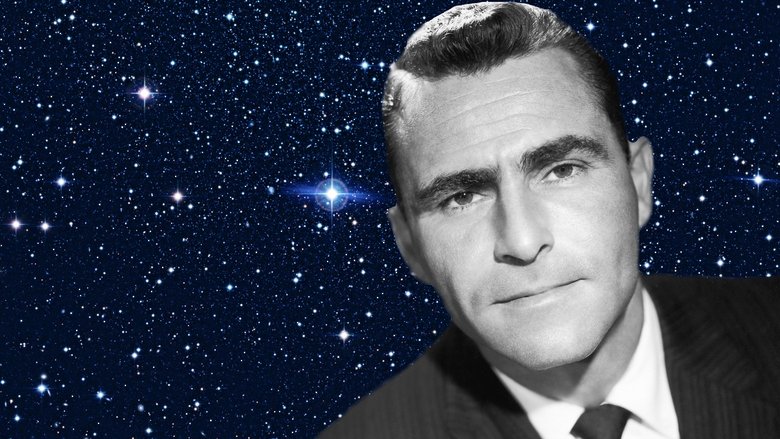Mind-bending sci-fi shows to watch if you like black mirror
If you're captivated by Black Mirror's unsettling look at technology and society, you're likely searching for your next fix of thought-provoking sci-fi. Dive into these series that explore similar themes of dystopian futures, technological anxiety, and the darker side of human nature.



Finding shows that scratch the same itch as Black Mirror's unique blend of technological cautionary tales and human drama can be a challenge. While Black Mirror often excels in its standalone anthology format, exploring a new terrifying concept each episode, many other series delve deep into similar themes across overarching narratives.
Think about the anxieties surrounding artificial intelligence, surveillance, virtual reality, and societal control. These are not new concepts; classic shows like The Twilight Zone and The Outer Limits pioneered the format of using speculative fiction to hold a mirror up to society's fears and flaws decades ago. Philip K. Dick's work, which inspired Electric Dreams, has long explored the blurring lines between reality and perception, a common thread in many of these shows.
Modern series often take these ideas and expand them into complex, multi-season arcs. Shows like Westworld dive deep into the consciousness of AI, while Mr. Robot explores the dark underbelly of the digital age and corporate control. Others, like Dark or Sense8, weave intricate mysteries involving time, connection, and fate, pushing the boundaries of science fiction storytelling. Whether it's the eerie governmental experiments in Stranger Things and The X-Files, or the ethical dilemmas of genetic manipulation and identity in Orphan Black and Humans, this list offers a diverse range of series that will make you question the world around you, much like Black Mirror does.
14. Stranger Things (2016)
Stranger Things is a hugely popular series that blends sci-fi, horror, and 1980s nostalgia. It follows a group of kids in a small town who encounter supernatural forces and secret government experiments. While it features scientific elements and dangerous government activity, its core is more rooted in adventure, horror, and character relationships than the technological and social commentary typical of Black Mirror.
The show excels at creating a specific retro atmosphere, lovable characters, and genuinely thrilling suspense. It's a continuous narrative with strong serialized elements. If you enjoy the sci-fi and mystery aspects of some Black Mirror stories but prefer a more classic, adventure-driven narrative with supernatural horror elements and a strong sense of nostalgia, Stranger Things is a beloved phenomenon that delivers. It's less about holding a mirror to society's tech habits and more about battling monsters from another dimension.

13. The X-Files (1993)
The X-Files is an iconic sci-fi drama that follows FBI agents Fox Mulder and Dana Scully as they investigate paranormal and unexplained cases. While its focus is more on aliens, monsters, and government conspiracies than near-future technology, it shares Black Mirror's episodic structure (especially in its early seasons) and its exploration of societal paranoia and the unknown.
Mulder's belief in the extraordinary contrasts with Scully's scientific skepticism, creating a dynamic that fueled the show for years. It tapped into late 20th-century anxieties about authority and hidden truths. If you like the standalone mystery format of earlier Black Mirror episodes and are interested in speculative stories dealing with shadowy organizations and phenomena beyond our current understanding, The X-Files is a cultural touchstone worth visiting. Just be prepared for less tech commentary and more classic paranormal investigation.
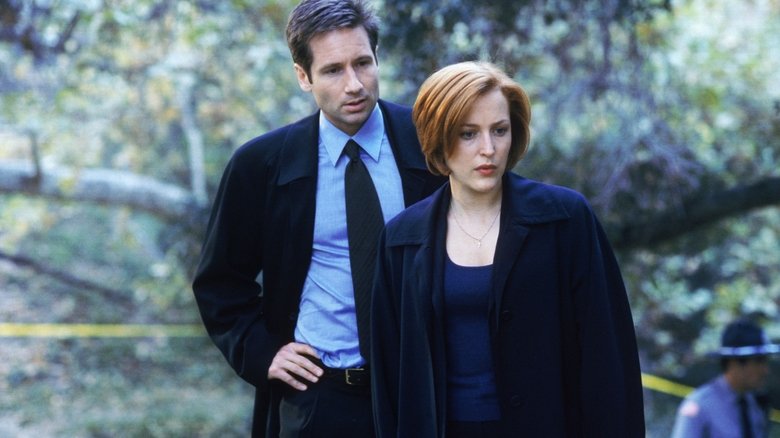
12. Fringe (2008)
Fringe is a science fiction procedural that follows a team investigating bizarre, unexplained phenomena linked to a parallel universe. While it has overarching plotlines and character arcs unlike Black Mirror's anthology format, many of its individual episodes explore fascinating and often unsettling scientific concepts that push the boundaries of reality.
The series delves into topics like parallel universes, time travel, genetic manipulation, and mind control, often presenting 'fringe science' that has gone terribly wrong. It blends elements of mystery, horror, and character drama. If you enjoy the scientific speculation and unsettling scenarios found in some Black Mirror episodes, but prefer a continuous story with compelling characters and a long-running mythology, Fringe is a great choice. It's a clever show that constantly reinvents itself.
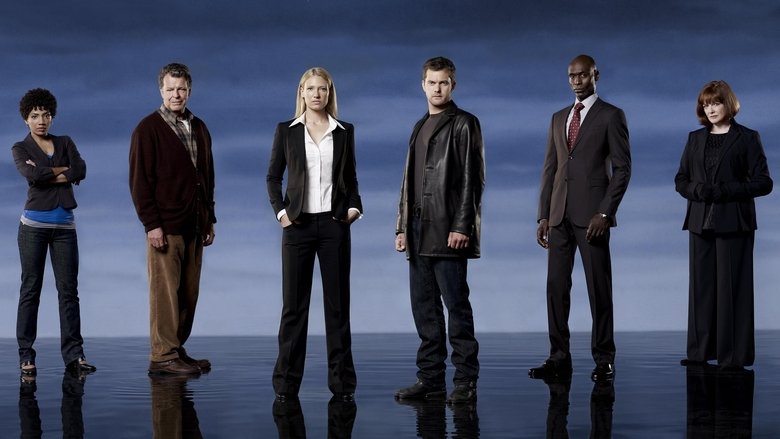
11. Sense8 (2015)
Sense8, created by the Wachowskis and J. Michael Straczynski, is a unique science fiction drama about eight strangers from different parts of the world who suddenly become mentally and emotionally linked. This connection allows them to share knowledge, skills, and experiences, forming a collective called a 'sensate cluster.'
While its themes are more about connection, empathy, and global community than technological dystopia, it shares Black Mirror's willingness to explore speculative concepts and their impact on human lives on a deeply personal level. The series is known for its ambitious scope, diverse cast, and stunning cinematography, often featuring characters literally sharing physical spaces and abilities. If you're open to sci-fi that's less about the dangers of technology and more about extraordinary human (or post-human) potential and connection, Sense8 offers a truly original and emotionally resonant experience.

10. Orphan Black (2013)
Orphan Black is a thrilling sci-fi series centered around a woman who discovers she is one of many clones. This premise kicks off a complex mystery involving corporate conspiracies, scientific ethics, and the nature of identity.
While it's not an anthology and has a continuous, action-packed plot, it shares Black Mirror's interest in the ethical boundaries of science and how technology (in this case, cloning) impacts individuals and society. The show is particularly praised for Tatiana Maslany's incredible performance playing multiple distinct clone characters. If you enjoy the scientific thriller aspects and the exploration of identity found in some Black Mirror stories, Orphan Black offers a fast-paced and cleverly written mystery with a fantastic lead. It's a binge-worthy journey into the world of genetic manipulation.

9. The Handmaid's Tale (2017)
The Handmaid's Tale, based on Margaret Atwood's chilling novel, is a dystopian drama that, while not focused on technology in the same way as Black Mirror, shares its power to disturb and provoke thought through speculative fiction. It depicts a totalitarian society where environmental disaster and a plummeting birth rate have led to women being subjugated and fertile women forced into servitude.
The series is a powerful exploration of oppression, resistance, and the fight for bodily autonomy. Its strength lies in its unflinching portrayal of a terrifyingly plausible future and its deep focus on the psychological toll of living under such a regime. If you appreciate Black Mirror's ability to present a frighteningly realistic near-future scenario that serves as a commentary on present-day issues and human rights, The Handmaid's Tale will resonate deeply. It's intense, critically acclaimed, and profoundly impactful.

8. Altered Carbon (2018)
Altered Carbon presents a future where consciousness can be digitized and transferred between bodies, or 'sleeves.' This central concept opens up a world ripe for exploring themes of immortality, identity, class disparity, and the ultimate value of human life – all subjects that feel right at home alongside Black Mirror.
Set in a visually stunning cyberpunk future, the series follows an elite soldier brought back to solve a murder. It's a noir detective story wrapped in cutting-edge science fiction. The show doesn't shy away from the darker aspects of this technology, depicting extreme wealth inequality and the casual commodification of bodies. If you're drawn to Black Mirror episodes that delve into futuristic technology and its profound societal and personal consequences, particularly regarding identity and the body, Altered Carbon offers a stylish and action-packed, albeit darker, take on these ideas.
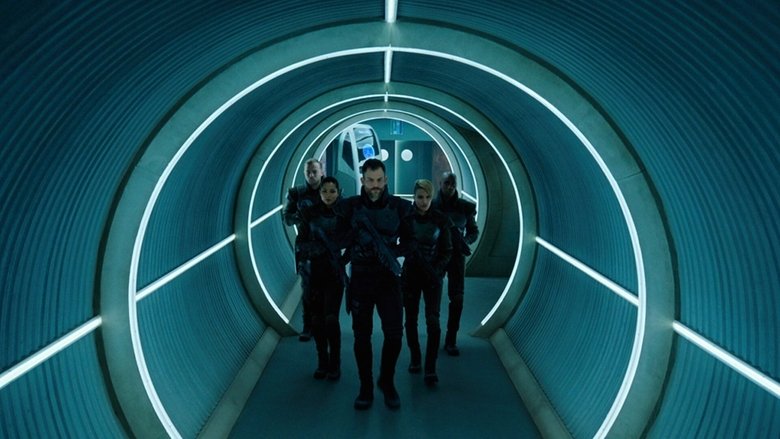
7. Westworld (2016)
Westworld takes the concept of a futuristic theme park populated by lifelike androids and spins it into a complex, multi-layered narrative about consciousness, control, and reality. While it evolves into a grander story, its initial premise and ongoing themes often echo the technological and philosophical questions posed by Black Mirror.
The series is known for its intricate plotting, stunning visuals, and stellar cast. It constantly blurs the lines between human and host, exploring the ethics of treating advanced AI as property and the potential consequences of creating beings capable of suffering and awareness. If you appreciate Black Mirror's exploration of artificial intelligence, simulation, and the dark side of entertainment and technology, Westworld offers a sprawling, ambitious, and often brutal examination of these ideas. It's a puzzle box that rewards careful watching.
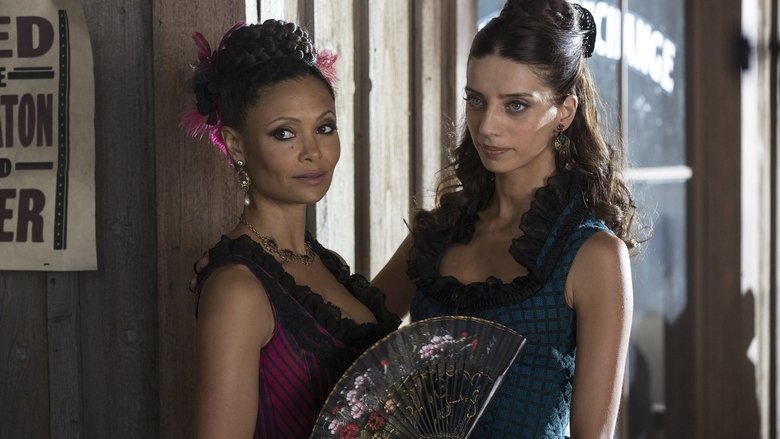
6. Humans (2015)
Humans explores the ethical implications of artificial intelligence by focusing on sentient synthetic beings called 'synths.' Set in a parallel present where synths are commonplace servants, the show asks profound questions about consciousness, rights, and what truly separates humans from machines.
Like Black Mirror, it uses technology to hold a mirror up to society, examining prejudice, family dynamics, and the definition of personhood. The series follows several interconnected storylines involving different synths and their human counterparts, exploring the growing tensions and moral complexities of coexisting with increasingly sophisticated AI. If the episodes of Black Mirror that tackle artificial intelligence and its societal impact resonate with you, Humans provides a thoughtful, character-driven exploration of similar themes. It's less dystopian shock and more nuanced drama.

5. Mr. Robot (2015)
Mr. Robot plunges you into the chaotic world of cybersecurity, corporate power, and fractured identities. While it's a continuous narrative rather than an anthology, it shares Black Mirror's critical lens on technology and society, particularly the darker side of the internet and digital surveillance.
The series follows Elliot Alderson, a brilliant but unstable cybersecurity engineer who gets involved with a hacker group aiming to dismantle corporate America. Its portrayal of hacking is often lauded for its accuracy, and the show employs a unique visual and narrative style that reflects the protagonist's state of mind. If you're fascinated by the technological anxieties and psychological depth found in some Black Mirror episodes, Mr. Robot offers a compelling, intense, and visually striking experience. It's a deep dive into the digital underbelly of modern life.

4. Dark (2017)
Dark is a German sci-fi thriller that, while not an anthology, shares Black Mirror's penchant for exploring complex, often bleak consequences of technology and human choices. However, instead of standalone episodes, Dark weaves an incredibly intricate, multi-generational narrative centered around time travel and its devastating impact on a small town.
Be prepared for a series that demands your full attention; its plot is a carefully constructed puzzle of interconnected events spanning decades. It delves deep into themes of fate, free will, and the cyclical nature of trauma, all wrapped in a moody, atmospheric package. If you enjoy the darker, more philosophical side of Black Mirror and are ready for a deep dive into a single, compelling mystery with incredible payoff, Dark is a must-watch. Its storytelling is dense but immensely rewarding.
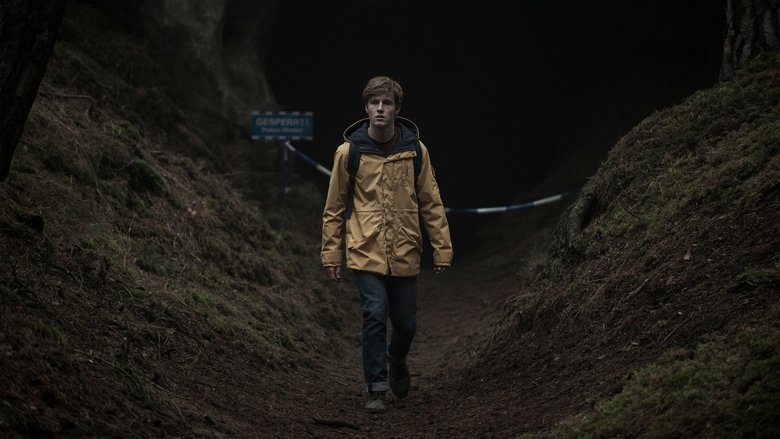
3. The Outer Limits (1963)
Just like The Twilight Zone, The Outer Limits stands as a foundational pillar of science fiction television and a clear precursor to modern speculative anthologies. Running in the 1960s, this show focused more heavily on monstrous creatures and scientific anomalies, often beginning with the iconic 'There is nothing wrong with your television set' opening narration.
While it leaned into creature features and scientific horror more than its contemporary, it still delivered powerful, often unsettling stories that explored ethical dilemmas, technological advancements, and the unknown. Its visual style was often quite striking for its time, and many episodes are genuinely eerie and thought-provoking. If you appreciate the standalone, idea-driven nature of Black Mirror and want to explore the roots of this genre, The Outer Limits is essential viewing. It proved that television could tackle complex sci-fi concepts with intelligence and scares.

2. Philip K. Dick's Electric Dreams (2017)
Philip K. Dick's Electric Dreams is a fantastic contemporary take on the anthology format, directly adapting the mind-bending stories of one of science fiction's most celebrated authors. Each episode is a standalone tale, crafted by different writers and directors, offering a diverse range of visions inspired by Dick's work.
Much like Black Mirror, this series delves into themes of identity, reality, technology, and what it means to be human in complex, often unsettling future or alternate settings. You'll find yourself questioning everything alongside the characters. The production values are high, attracting a host of talented actors and creatives. It's a perfect show to scratch that itch for thought-provoking, self-contained sci-fi narratives that leave you contemplating long after the credits roll. A true heir to the speculative fiction throne.

1. The Twilight Zone (1959)
Step into a dimension of sight and sound, of mind. Yes, we're talking about The Twilight Zone, the absolute grandfather of speculative anthology series that paved the way for shows like Black Mirror. Created by the legendary Rod Serling, this show wasn't just sci-fi; it was a profound examination of the human condition, often using fantastical or futuristic premises to explore social issues, fears, and morality.
Serling's writing was sharp, his introductions iconic, and the twist endings became a signature element. It tackled everything from paranoia and prejudice to the dangers of technology and conformity, themes that resonate just as strongly today. Many of its episodes are considered classics of television, and its influence on pop culture is immeasurable. If you love Black Mirror's ability to make you think and feel uneasy about the world, you owe it to yourself to visit The Twilight Zone. It's a timeless masterpiece that proves great storytelling transcends special effects.
